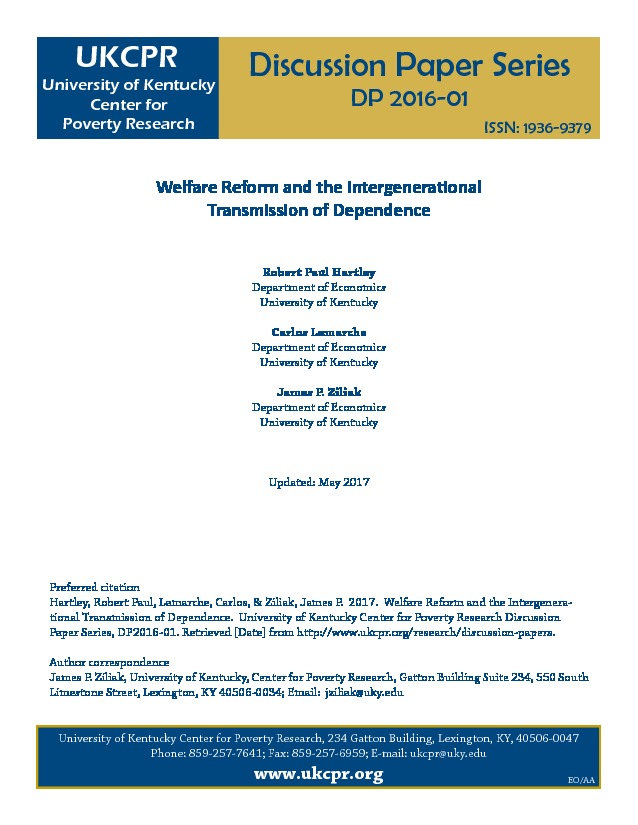We estimate the effect of welfare reform on the intergenerational transmission of welfare participation and related economic outcomes using a long panel of mother-daughter pairs over the survey period 1968-2013 in the Panel Study of Income Dynamics. Because states implemented welfare reform at different times starting in 1992, the cross-state variation over time permits us to quasi-experimentally separate out the effect of mothers’ welfare participation during childhood on daughters’ economic outcomes in adulthood in the pre- and post-welfare reform periods. We find that a mother’s welfare participation increased her daughter’s odds of participation as an adult by roughly 30 percentage points, but that welfare reform attenuated this transmission by at least 50 percent, or at least 30 percent over the baseline odds of participation. While we find comparable-sized transmission patterns in daughters’ adult use of the broader safety net and other outcomes such as educational attainment and income, there is no diminution of transmission after welfare reform. These results are obtained by addressing nonrandom selection into welfare and are robust to other potential threats to identification from misclassification error, life-cycle age effects, and cross-state mobility.
Research
Welfare ReformPDF Thumbnail
